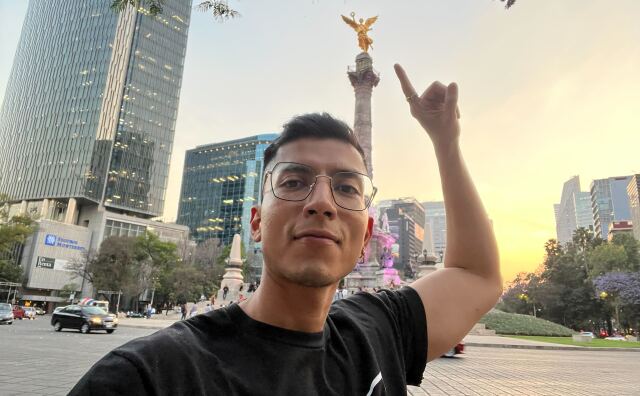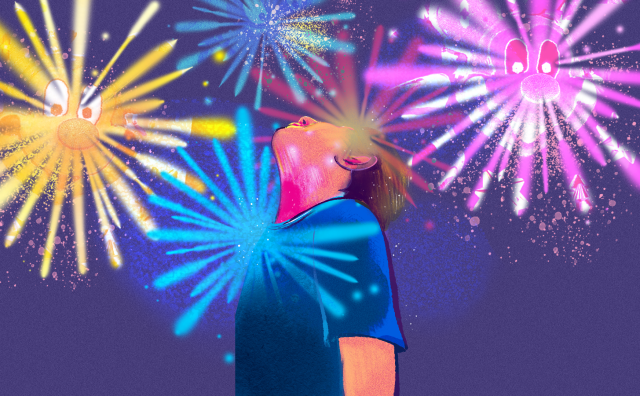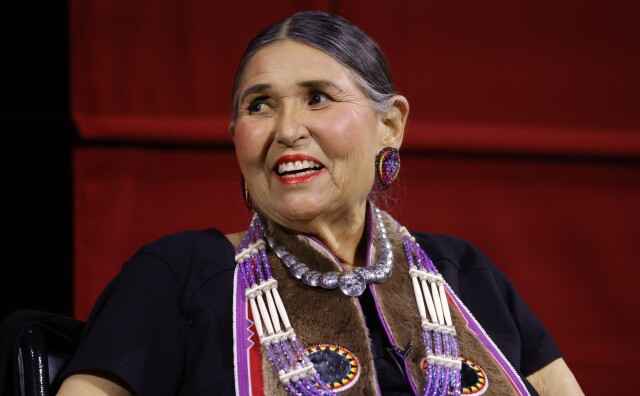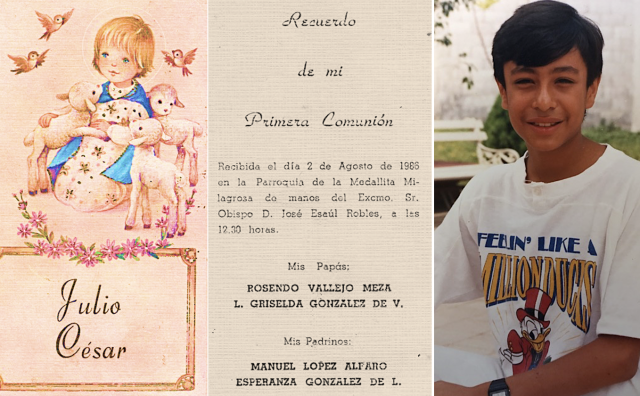'We Don't Hire Colored Girls': After A Job Rejection In 1956, A Young LA Telephone Operator Began Kicking Down Doors

Los Angeles, 1956.
Cedars of Lebanon Hospital was where the old-time Hollywood stars went for medical treatment -- the likes of Marilyn Monroe, Elizabeth Taylor and Burt Lancaster.
-
From June 2020 to July 2021, we published your stories each week to continue important conversations about race/ethnicity, identity and how both affect our lived experiences. We now have a new series Being American, which is again soliciting your essays.
-
Read:
It was the Palace of the Stars as hospitals went. And I'd just been hired to work there.
I arrived on a late Friday afternoon. I wasn't looking to see Marilyn or any other stars. I was there for my new job work schedule for the upcoming week.
I sat in the hospital's ornate lobby, taking in the Picasso prints and the other high-end artwork adorning the walls, while I waited to meet their telephone department's Chief Operator.
When I asked the receptionist to please let the Chief Operator know I was there, she gave me an unfriendly nod, and told me to have a seat.
I waited to be called. I waited. I waited.
I'd landed this job in a most unusual way.
My previous employer was Pacific Bell; I had been trained by them as a long-distance operator.
When I applied to work at Cedars of Lebanon, I'd simply called the hospital and asked to speak with the Telephone Chief Operator. Once she was on the line, I explained that I was hoping they had an opening on their switchboard, and I quickly let her know that my previous employer was Pacific Bell.
Whammo!
Hired on the spot -- on the telephone. To be a Ma Bell switchboard operator back then was the top of the telephone operator game.

"Get here as soon as you can to sign papers and get your work schedule. You're starting on Monday," I was told.
My new boss went on to emphatically say, "Don't go to our employment office, just ask for me in the lobby."
"I'm on my way," I told her.
WHAT I DIDN'T KNOW
I was born in Los Angeles, in 1937, to young parents who had migrated to California from the South as youngsters, each of them with parents who came west believing this was the Promised Land.
Growing up, my parents made sure I didn't know why their families came here. They never told me about segregation, about lynchings. Never once mentioned anything that took me beyond piano lessons, violin lessons, recitals and the Los Angeles Philharmonic children's concerts every Saturday.
Then came 1955, when I was hired at age 18 by Pacific Bell -- it was about the same time the local newspapers were reporting Marilyn Monroe had checked into Cedars of Lebanon for surgery.
This was also the year when I'd heard something about a boy -- a Negro boy, as we were called then -- named Emmett Till being brutally murdered in Mississippi for allegedly flirting with a white woman.
How or where I heard this, I don't know. But it wasn't a conversation that took place in my home.
And I wouldn't say Monroe's surgery got discussed, either.
My parents didn't think to put an emphasis on news -- and certainly not on race.
As a young kid, if I got called the "N-word," and told my mother about it, her response was, "If you were walking down the street and someone yelled 'dog' at you, would you think they were talking to or about you?"
Their goal was to protect me, and I understand that now. They wanted for me to be blissfully unaware of the horrors their families had fled, and to grow up like any other American girl in the California sunshine.
But it left me unprepared for what happened at Cedars of Lebanon that Friday.
IN THE LOBBY
Waiting in that hospital lobby to meet with the Chief Operator, I had a limited view of who I was to other people, and therefore I had no knowledge of what the circumstances might be that left me sitting there for such a long time.
I had a new job, after all. As I waited and waited and waited, I only thought about what cute outfit I would dress in for my first day at work. I'd just about made that decision when I saw the receptionist talking on her telephone, and from time to time glancing in my direction.
She didn't stay on the call very long, and after hanging up, she stood up and loudly cleared her throat, at the same time beckoning to me.
I moved to her desk where she had returned to sit.
"You'll need to catch the elevator to the employment office on the second floor," she said.
"No, no," I responded to her and tried to continue, "I'm to meet with the..."
"We have a clerk typist job for you," she said.
"No, I'm already hired as a switchboard operator. I start next..."
She stood up and leaned toward me, while at the same time abruptly cutting me off from explaining why I was there.
"No," she said emphatically, then: "We don't hire colored girls to work our switchboard."
MORE FROM OUR RACE IN LA SERIES
- Dear Racist': How Rage-Writing Turned To Rage-Drawing For An Artist Who's Fed Up With Anti-Asian Hate
- Brown and Blue: A Mexican American Police Family Tries To Reconcile 'Who We Once Were, Who We Now Are, And Who We Want To Be'
- An Education In Becoming Whole Again: How My College Experience Taught Me To Love My Blackness
- What It Really Means To Amplify Black Voices
- Raising A Black Boy In America When You're Neither Black Nor American
- On Life As A Freckle-Faced, Redheaded, Mexican American From Southeast Los Angeles
- How To Participate In Our Series
My parents had brought me up to be respectful.
"But...But...," I meekly responded.
And in trying to protect me, they also brought me up to be unaware of racial injustice.
Remember my mother's response to the N-word, how she didn't call it for what it was?
Having been taught that America was beautiful, even though my skin wasn't white, my life at the age of 19 had me believing I was just like anyone whose skin was white. This is what my parents had wanted me to believe.
In the Los Angeles that my parents were careful to guide me through -- philharmonic concerts, events at the Hollywood Bowl, enrollment in a junior high school where my older sister and I were two of five Negro students in a student body of 1,500 -- they managed, with the best of intentions, to keep me misguided.
They never talked about what they had to have known about racial conflict in America, and closer to home, racial disparity in Los Angeles. Coming from where they came from, L.A. was still their Promised Land, and they weren't about to spoil that dream by exposing their children to harsh reality.
My high school history books didn't focus on truth, either, and taught us that slavery was a happy time -- evidenced, in part, by slaves singing while they picked their benevolent master's cotton.
I didn't know -- how was I to know?
Dazed, I left the hospital and took the local streetcar back home.
LEARNING TO 'READ' THE SIGNS
What happened that day was the beginning of my education.
Not so much in the first few years, when I was busy starting a family. But then the 1960s hit.
In 1966, the "We don't hire colored girls on our switchboard" incident came to life for me. I was reborn at the same time the Black Panthers were born. The sixties taught me what I suspect my parents had hoped I would never learn.
In the sixties, I learned that America was not beautiful, and that my dark skin didn't let me in the same doors white skin would have.
True, in Los Angeles, there were no drinking fountains or public restrooms with signs that read "colored" and "white."
But thanks to my rebirth, I came to read the "colored" and "white" signs that were hidden, those signs that had existed at Pacific Bell Telephone Company and at Cedars of Lebanon Hospital. Same as an illiterate person, at the time these experiences had happened, I didn't know how to read them.
At Pacific Bell, they trained new-hire colored girls with colored girls, and new-hire white girls with white girls. And the white girls they hired didn't have to wait as long to start.

In my case, they came to interview me at home, after having cleared the initial company interview. This was something the white new hires didn't go through.
At Cedars, the woman who hired me on the telephone thought I was white because of my employment at Pacific Bell, and a voice honed by my exposure as an operator and family environment.
Once arriving at the hospital that Friday afternoon to sign my papers and be given my work schedule for the upcoming week, my real skin color quickly generated for them the displaying of invisible "white only" and "no colored" signs.
From 1956 to 1966, I still didn't know white America. How was I to know that all the teachings that had been sent my way were not about who I was seen to be?
Thank God Almighty, I learned to read.
Thank God Almighty, I was born again.
From the comfort of my living room couch, in 1965, I watched news footage of Watts burning. Hearing chants of "Burn Baby Burn" was unsettling.
In the months that followed, news reports focused on an organization of young Black folk who wore black leather jackets and black berets: the Black Panthers. They held gatherings in Los Angeles assembly halls and with raised fists and militant rhetoric, they demanded change.

From what the news channels presented, the group was menacing. However, what I learned when I got off my couch and drove to the Los Angeles Sports Arena and heard Eldridge Cleaver, H. Rap Brown and Huey Newton speak, that was a very different story.
Fortunately, my parents hadn't taught me I was only who society determined I could be. In 1967, I applied for and was accepted by the High Potential Program at UCLA. And in 1974, then a single parent of five kids, I graduated with the honor of Departmental Scholar in Sociology.

I believe in kicking down doors. I don't carry the keys for the traditional kind of entry.
Years later in 1994, as a guest opinion columnist for the Pasadena Star-News, I received a first place award for opinion commentary from the L.A. Press Club. Standing at the podium, I saw a sea of white faces in the room, with the exception of one Black cameraman. And I asked them, how could they feel they represented Los Angeles when there was no diversity in the room?
My experience at Cedars of Lebanon in 1956, when the doors were closed, opened my path for a lifetime of kicking them down. That experience didn't make me less. It made me more.
ABOUT THE AUTHOR:
Shirlee Smith is motivated every time our uptight society says she can't; she likes to prove that she can. She's on a mission to help others prove they can. Shirlee is a parenting consultant, motivational speaker, storyteller and a workshop presenter, as well as a mother and grandmother. She was named a Black History Month Local Hero by KCET/Union Bank in 2012 and is an award-winning former columnist for the Pasadena Star-News.
-
My good friend used advance parole to leave the country and return. Now it's my turn to go back "home."
-
When you grow up in Anaheim close enough to watch Disneyland fireworks every night while your family can’t afford to go, you can’t help but feel like you’re on the outside looking in.
-
She sat down with us in April, nearly 50 years after the night she turned down Marlon Brando's Best Actor Oscar — which is still among the most memorable and contentious in Academy Awards history.
-
Latin America is no stranger to racism and colorism — just turn on a telenovela and see for yourself. And it’s alive and well in our own communities here in the U.S.
-
When you grow up identifying as "half white and half Mexican," the task of choosing what box to check on a government form isn't easy.
-
Growing up as the son of a Filipino immigrant dad and Russian American mom, Mark Moya felt equally attached to both cultures. He still does. Lately, he's been thinking more about their immigrant legacy and how it shaped him, especially after losing his dad earlier this year to COVID-19.







